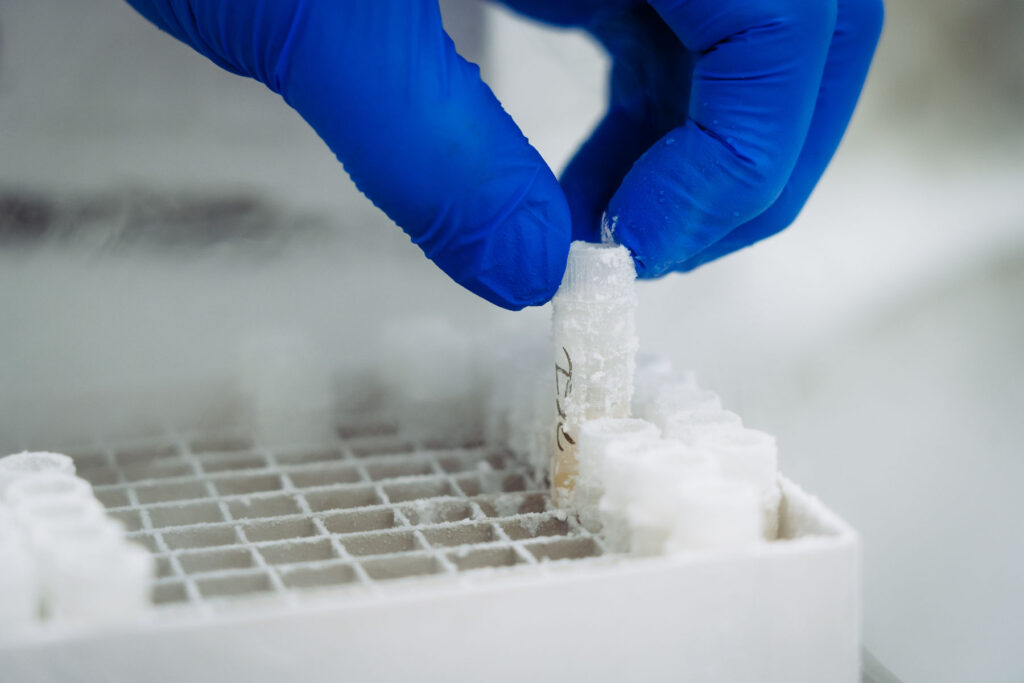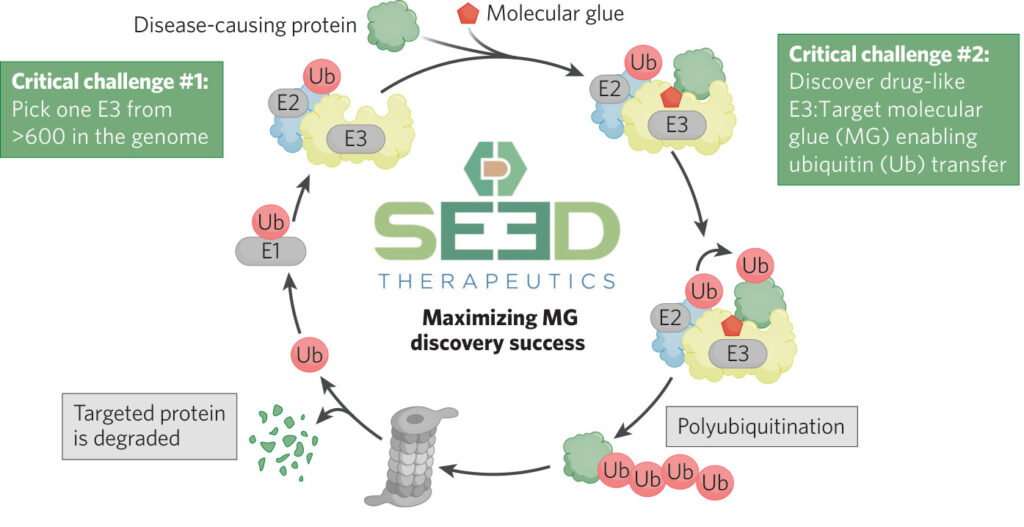SEED Therapeutics is a global research company uniquely focused on harnessing and engineering molecules that use molecular glues to attack protein targets previously believed to be “undruggable”.
Science & Innovation

Maximizing molecular glue discovery success

Pipeline
SEED’s pipeline is focused on targeting key undruggable proteins across human disease.
Mid 2025: IND Cleared
1Q 2026: First Human Dose
SEED owns global IP on all programs except for three partnered programs (labeled with *).
Science & Innovation
Target: RNA-binding motif protein 39 (RBM39) involved in RNA splicing and gene transcription. RBM39 overexpression is linked to cancer cell survival and resistance to therapy in multiple cancer types.
Indications: : RBM39 driven tumors including Ewing sarcoma, bile duct cancer, KRAS mutation positive colorectal cancer, testicular cancer, breast cancer, ovarian cancer, endometrial cancer, hepatocellular carcinoma, and neuroblastoma
Breakthrough Potential:
- In preclinical studies, ST-01156 causes total tumor regression in models of KRAS mutation positive colon cancer, Ewing sarcoma, and neuroblastoma without weight loss.
- ST-01156 showed potent anti-cancer activity against several patient-derived models, including carcinoma of the liver, biliary duct, testicular cancer and endometrial cancer.
- In Ewing sarcoma models, ST-01156 degrades RBM39 to target EWS-FLI1 fusion protein, the oncogenic driver in 90% of cases of Ewing sarcoma. ST-01156 has been granted Rare Pediatric Disease and Orphan Drug designation by the U.S. Food and Drug Administration (FDA).
Clinical Status: IND cleared August 2025; advancing to patient dosing at top U.S. cancer institutions
As described in Nature Reviews Drug Discovery (2024):
“Armed with a better understanding of RBM39 biology, SEED is set to advance an optimized RBM39 degrader into the clinic next year.”
Science & Innovation
Target: Tau, a neuronal protein that can aggregate to drive synapse and neuronal loss in several neurodegenerative conditions.
Indications: Alzheimer’s disease, frontotemporal dementia, progressive supranuclear palsy, corticobasal degeneration, and Pick’s disease.
Breakthrough Potential:
- Newly discovered lead chemical series glues Tau to a preferred RITE3™ selected novel E3 ligase for targeted protein degradation.
- Degradation of Tau achieved in human neuronal cells, utilizing a favored tau protein domain
Preclinical Status: Advancing towards in vivo activity with lead series; testing in mouse beginning 2H 2025
Science & Innovation
Target: Kristen rat sarcoma virus (KRAS) G12D mutant that drives uncontrolled cell growth and survival in multiple cancers by constitutively activating downstream signaling pathways such as MAPK and PI3K.
Indications: Pancreatic ductal adenocarcinoma (PDAC), colorectal cancer, non-small cell lung cancer, and other KRAS/KRAS-G12D–driven solid tumors.
Breakthrough Potential:
- Breakthrough PROTAC combination discovered to achieve dramatic KRAS-G12D degradation in PDAC cells not achievable with monotherapy PROTACs.
- Proprietary molecular glue strategy initiated, targeting KRAS mutant cancer; projected to be SEED’s next IND in 4Q2027/1Q2028
Preclinical Status: PROTAC combination strategy advancing towards in vivo validation in 1H 2026; Molecular glue strategy targeting KRAS mutant cancers currently utilizing structure-based drug design and MedChem screening to advance to IND candidate selection in 2H 2026.

